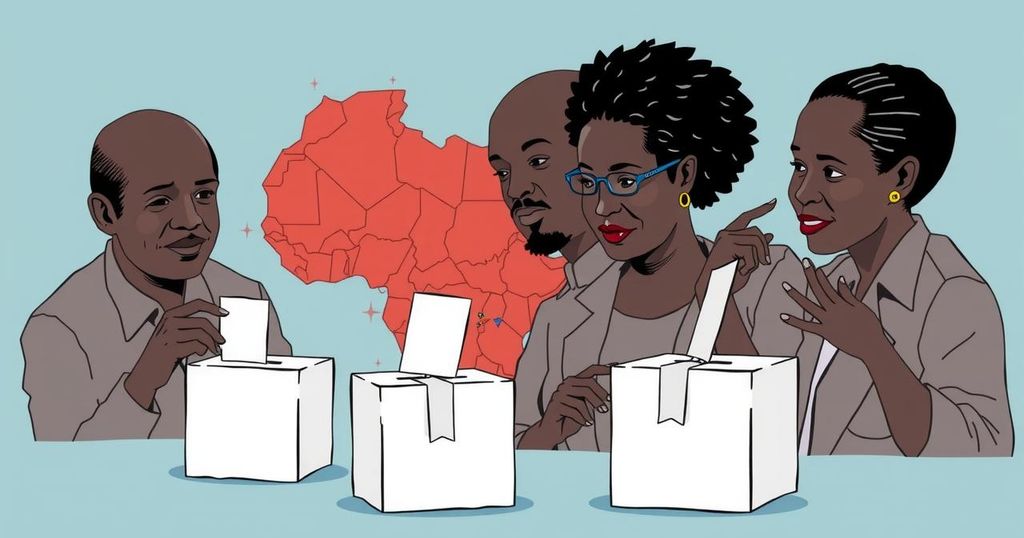2024 Southern Africa Elections Signal Major Political Shifts and Youth Engagement

The 2024 elections in Southern Africa saw major political upheavals with long-standing liberation parties, such as Botswana’s Democratic Party and South Africa’s ANC, losing power amid rising youth discontent and economic challenges. Young voters prioritize governmental performance over historical narratives, which signifies a significant generational shift and calls for reform within established political frameworks throughout the region.
In 2024, a series of elections in Southern Africa marked significant political shifts, particularly for long-standing liberation parties. Voters in countries like Botswana, South Africa, Namibia, and Mozambique displayed a desire for change, driven largely by the growing influence of younger constituents who prioritize tangible governance over historical credentials. For instance, the Botswana Democratic Party was ousted after 58 years of rule, while the African National Congress in South Africa experienced its first minority governance since the end of apartheid, highlighting a turning point in regional politics. The newly elected leaders now face pressing economic challenges, especially given the high rates of youth unemployment and public dissatisfaction that threaten the stability of long-governing parties.
The elections in Southern Africa occurred within a relatively stable democratic framework, as noted by observers and political scientists. However, pervasive economic issues and the disengagement of youthful voters from the past liberation narratives indicate a potential reformation of the political landscape. As traditional ruling parties struggle, newer political movements and opposition coalitions are gaining traction, exemplifying a significant generational shift in political engagement within the region.
Elections in 2024 within Southern Africa exposed a fundamental change in the political landscape of the region. Historically, many nations in this area have been ruled by liberation parties that led the struggle against colonialism. However, with a demographic shift towards voters who have no direct memory of those liberation struggles, there is an evident transition in expectations from governments. Economic grievances, particularly among the youth, have catalyzed movements against these longstanding parties, demonstrating a pivotal moment in Southern African politics where the priorities of voters are evolving.
The 2024 elections in Southern Africa reflect a notable departure from previous political norms characterized by the dominance of liberation parties. As younger voters increasingly seek accountability and improved governance, traditional parties face mounting pressure to address economic challenges and public demands. The results signify not only a shift in power dynamics but also an urgent call for reforms among established political entities, underscoring the necessity for responsive leadership in a rapidly evolving political environment.
Original Source: apnews.com







